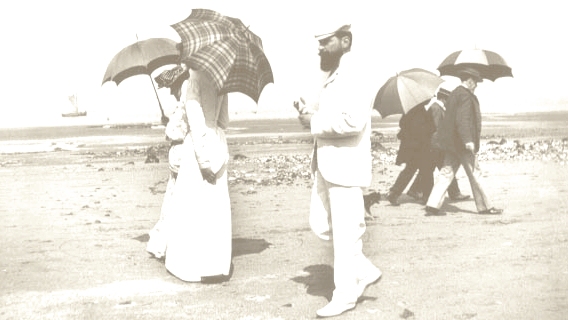the captivating Edna O'Brien delivers the Evangeline Wilbour Blashfield Foundation Address, at the American Academy of Arts and Letters, May 15th, 2002.
text at The New Yorker Online:
Down the years, the written word has incurred crucifixion, beheading, stoning, castration, burnings, outrage, vehemence, intemperance, and a bigotry that veers from the righteous to the superstitious. To take two tiny examples: Theodore Roosevelt described Tolstoy as "a sexual and moral pervert." Subsequently, the Postmaster General prevented copies of "The Kreutzer Sonata" from being distributed, lest it imperil the morals of America. Stalin, the Kremlin mountaineer, who had liquidated millions, believed, in the occasional Faustian moment, that Mandelstam possessed the magical powers of a shaman. My own mother sustained such a revulsion for the written word it was as if she had read Molly Bloom in a secret incarnation and had to do atonement for it.Her constant adage to me, which is certainly open to interpretation, was "That paper never refused ink."
Writers have been in the trenches from time beginning. Euripides, to my mind the greatest of the Greek dramatists, was driven out of Athens around 409 B.C., his crime being his unflinching depiction of the evil inherent in both God and man. Cutting across the orchestrated glorification of power and plunder, he wrote of the monumental folly of the Trojan War, supposedly fought over a bedizened, sensuous, and totally guiltless Helen of Troy. He fled to Macedonia and was devoured by the king's hunting dogs, which is how he died. Danger comes in many guises—political, religious, sexual, psychological, and linguistic. The stymieing of thought and of ideas has always had precedence in every epoch. Followers of Confucius were burnt alive, the emperor Tiberius had those who criticized him starved to death and then crucified. The English crown, with a nicety inconsistent with much else of its conquest and rapine, solved it completely by forbidding printing except by royal license, thus creating an ethos of precensorship, which continued until 1695. Sexual censorship found its flowering, its glorious patronage, in the person of Queen Victoria and her vassals, who commenced the drive for the purification of literature. They might just have foreseen the advent and birth of the Jesuitical James Joyce, born in Dublin on February 2, 1882, a city that he left forever in his early twenties, disavowing Mother Church and Mother Ireland. Joyce, smarting under early rejections, wished that his work would glean the same wrath as Flaubert's "Madame Bovary," in short, to be so scandalous as to incur a public trial. His prayer was duly answered.
(more)



